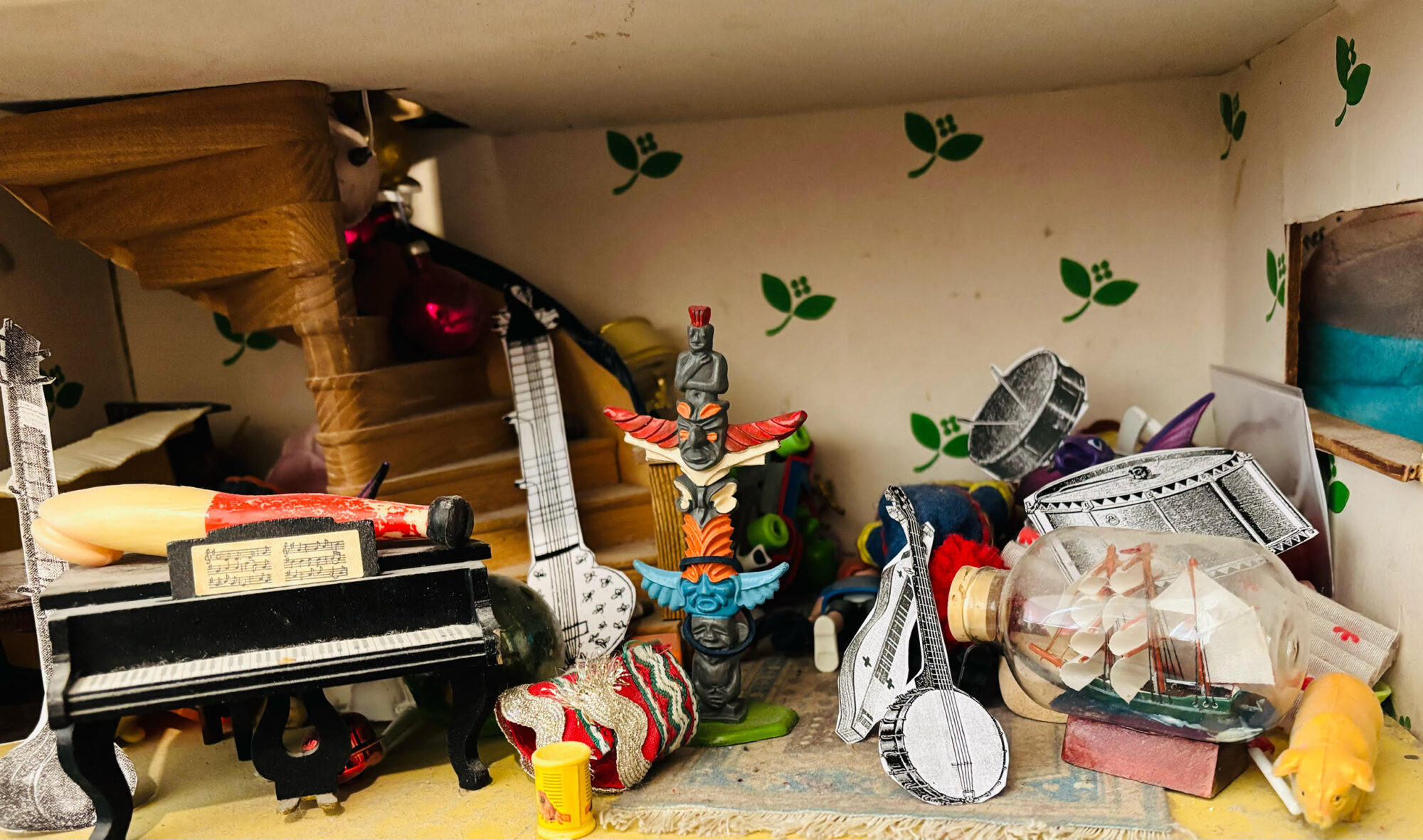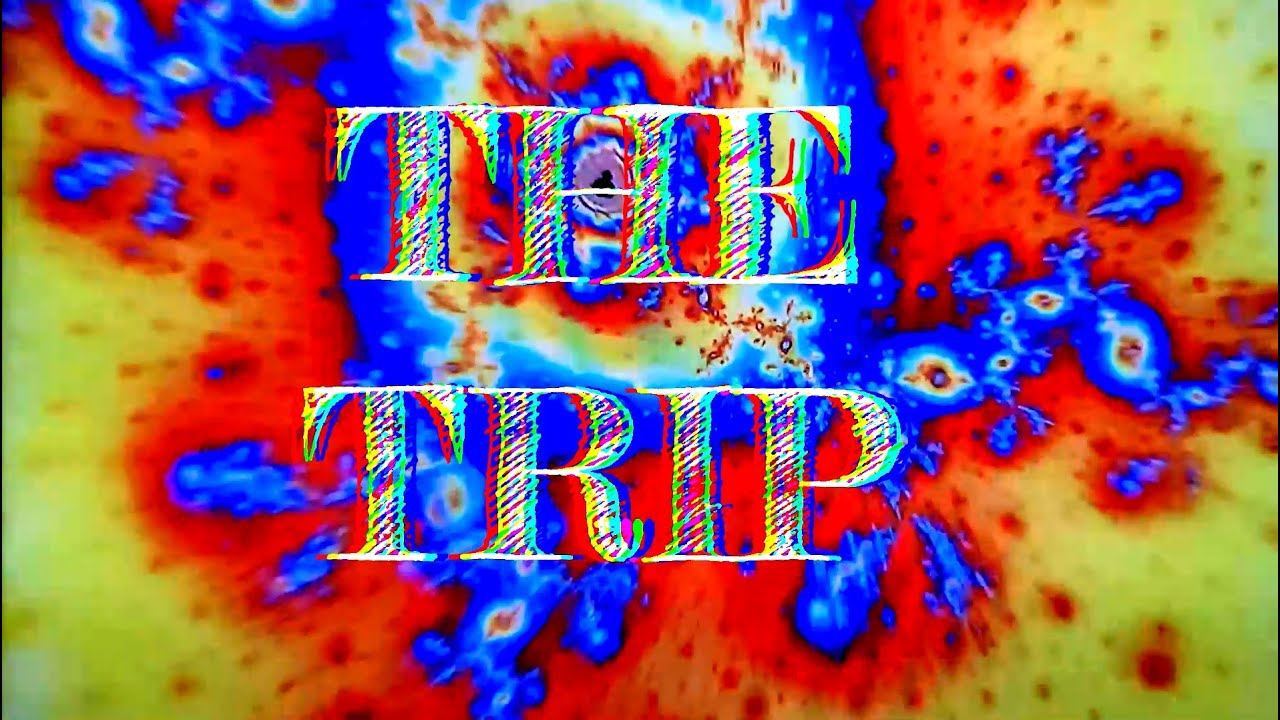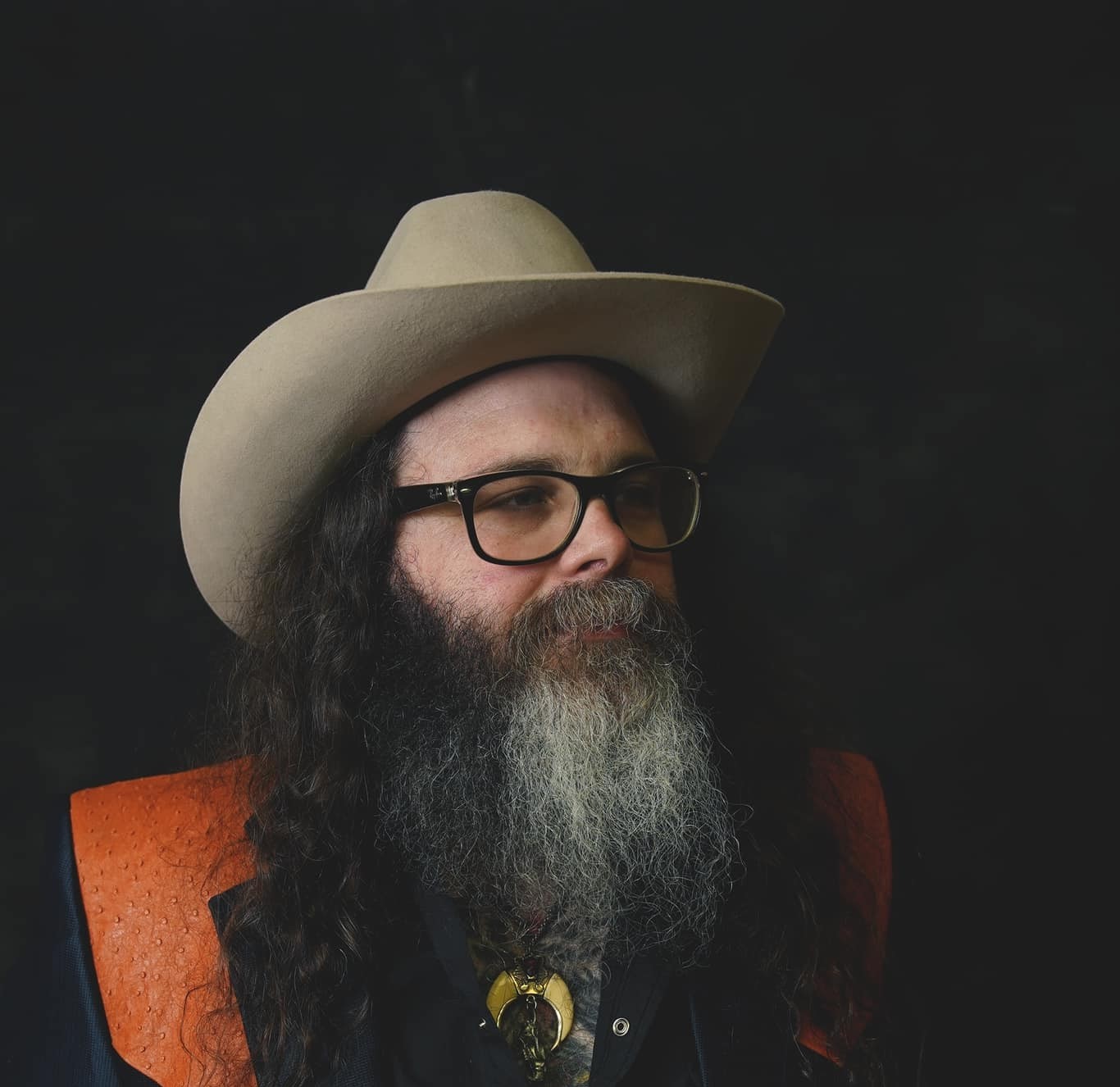Gordon Haskell interview
Gordon Haskell has been a musician and singer/songwriter for 50 years. Haskell first gained recognition as bass player for the British band The Fleur de Lys, and subsequently spent a short period in King Crimson, singing one of the songs on their second album and both singing and playing bass on their third album. After departing from King Crimson, he continued his musical career as a solo musician, gaining international recognition. The Cat Who’s Got The Cream is his the latest album.
Would you like to talk a bit about your background? Where and when did you grow up? Was music a big part of your family life?
I grew up in the country in the County of Dorset. Like many at the time, pre-Television, we had a piano and I would return from church with the hymns in my head and was attracted by the words of beauty and truth and wisdom set to memorable melodies so I began to learn how to play the ‘songs’. That always makes me identify with the black communities who were raised on gospel. It was the same spirit. And sent a clear message to me of the difference between good and evil regardless of the propaganda that came later about indoctrination by the church. There remains good and evil and it has become clear after a lifetime of fighting it who represents evil as all the evidence is available of who causes all the wars, and who controls all the money. They are one and the same. It’s all about money and the more money the banks have, the more power they have through their puppet governments. The product they sell is DEBT. An indebted nation becomes an enslaved population as taxes reach epic proportions until there is nothing left to give. We have reached this time in history and music which represents freedom and a spiritual power has to be destroyed if they are to continue their tyranny. My first album in my collection was Sam Cooke’s ‘A Change Is Gonna Come’, so I clearly connected with all the black artists that I began to love e.g. Ray Charles, Sam Cooke, Aretha Franklin and Marvin Gaye.
My family were not musical but I had a different father (an American) so my DNA differed and I had no one who understood my feelings until I began meeting musicians when I reached 14 years old.
When did you begin playing music? What was your first instrument? Who were your major influences?
I began playing at 13 or 14 on bass guitar and to a lesser degree, acoustic guitar (mainly to teach myself the notes within each and every chord for bass parts). My main influence at first was Jet Harris of the Shadows who was himself a jazz bassist, but I very soon got into Motown and James Jameson (Marvin Gaye, and the Motown sessions). Plus Duck Dunn of Booker T and the MGs whom I met in 1967 on the first Stax tour of the UK and who helped me enormously. At the time my band The Fleur de Lys had been hired by Atlantic Records as a session trio.
When did you decide that you wanted to start writing and performing your own music? What brought that about for you?
I was not ambitious but opportunities arose in the studios when a song was required quickly and I was in the right place at the right time. My first published son “Lazy Life” became a No. 1 in South Africa and Australia and very popular in the UK. The Polydor factory was hit by a strike, or the record would have charted in the UK based on 10,000 orders in its first week when the factory could not fulfill orders. Bad luck I guess.
Let’s start at the beginning with the League of Gentlemen. You were school friends with Robert Fripp and you formed the band together. What kind of material did you play?
The singer had a Roy Orbison voice so Orbison, Four Seasons and anything that showed off his vocals. I did not identify with any of the band’s material, except perhaps the Shadows instrumentals.
What can you tell us about the formation of The Fleur de Lys?
I was hired after the band had formed but we went through a lot of changes. The main players were Phil Sawyer (he later replaced Stevie Winwood in The Spencer Group) and Bryn Haworth who went on with a solo career as one of the best slide players in the UK (he’s on my new album). The later interest in The Fleur de Lys is due to all our work as session men, namely Keith Guster, drums, Me on Bass and Bryn on Lead guitar.Their full story is on line (Hendrix played with us on three occasions (The Speakeasy) plus a recording session at Kingsway Studios London.
How would you describe your sound? What influenced the band’s sound?
The Stax boys were our main influence. We spent time with Otis Redding, Booker T, Steve Cropper, Duck Dunn, Al Jackson, Aretha Franklin, Sam and Dave and Isaac Hayes (who offered us a tour of Europe backing him but we were too busy.) During Vanilla Fudge’s visit to London we all payed together in an all night session-and we became very influenced by their psychedelic arrangements.
When and where did The Fleur de Lys play their first gig? Do you remember the first song the band played? How was the band accepted by the audience?
Our opening song was “Cool Jerk” by The Capitols. The first Fleur de Lys were a ‘mod group’ and very popular with teenager girls . They toured all the ballrooms of the time. It does not interest me as much as what we became a year or two later in the studios.
What sort of venues did The Fleur de Lys play early on? Where were they located?
Ballrooms mainly all over the UK. Sometimes supporting bands like The Moody Blues or stars like Lulu. They were always full and we always were re-booked.
How did you decide to use the name “The Fleur de Lys”?
That happened before I joined. It was their manager Dave Jay.
You released quite a lot of singles. What are some of the strongest memories from recording them?
“Circles”, engineered by Glyn Johns at IBC studios London. Cut 2 sides in 3 hours. The record was in the shops 10 days later. It takes record companies 5-6 months of planning today by which time everyone involved is sick of it. I have NIL respect for corporate thinking. They have ruined everything in music. And it may well have been intentional driven by an agenda that has only just hit the world.
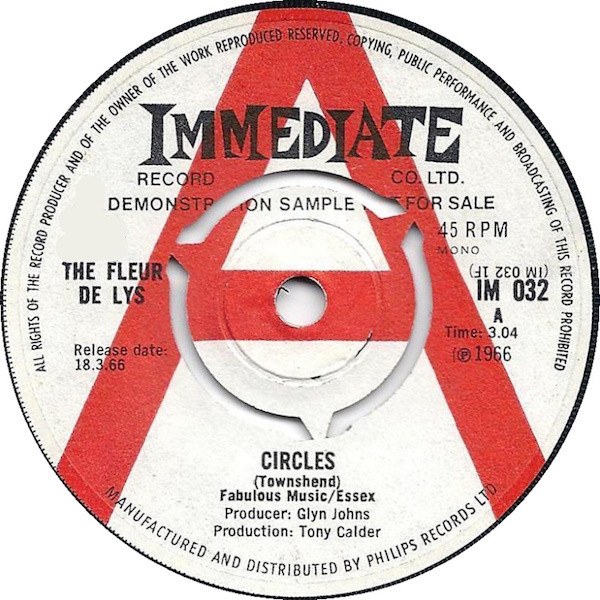
If you want to change the world, start by destroying their culture. It’s in the Marxist Playbook (Published) and is no accident. Non-believers will say I’m mad.
How did you get signed to Atlantic Records? Your band was hired by Atlantic Records as a full-time session band. What did that look like?
We worked 5 days a week in Polydor Studios in Stratford Place where all the new signings were coming. We witnessed Jimi Hendrix, The Bee Gees, The Who, and many others coming through the doors and we were hired whenever Atlantic had a new signing or project. One night we recorded with Vanilla Fudge for 8 hours of jamming but it was never used. But exciting and great experience. Every day was exciting for all of us. We were privileged as we also could go to all the clubs on Atlantic’s expense account. So we also met some of the other acts who played in the clubs. E.g. Tim Rose who wrote “Hey Joe”, which is how Hendrix came across it.
During the late 1960s you moved from Dorset to London and for a brief period you shared a flat with Jimi Hendrix.
The address was Cranley Gardens South Kensington. Keith Guster and I shared the flat with Jimi Hendrix. The flat was owned by The Animals who were away touring the USA. Jimi was waiting for Chas Chandler to return to organise his career. We showed him round London. We went to the guitar shops where he tried out guitars (Fender Strats). We went to his first gig at Blaises just up the road in Queensgate. We saw his Savile Theatre gig when he opened with “Sergeant Pepper’s Lonely Hearts Club Band”… He played with us on three occasions plus one recording session produced by Hilton Valentine, the Animals guitarist.
In 1969 you released your first solo album Sail in My Boat. What’s the story behind your debut album? Where did you record it? What kind of equipment did you use and who was the producer? How many hours did you spend in the studio?
This came about because the producer Jimmy Duncan of the band I had joined, Cupids Inspiration, got me a deal with CBS Records. The orchestra played live so it was done in a few days. I was impressed with the orchestrations but I was not in control so I regard it as a young artist just starting out and doing as I was told rather than ‘directing’. I wrote on a twelve string Gibson. It’s not bad though, but could have been a lot better. It was recorded in Lansdowne Studios London.
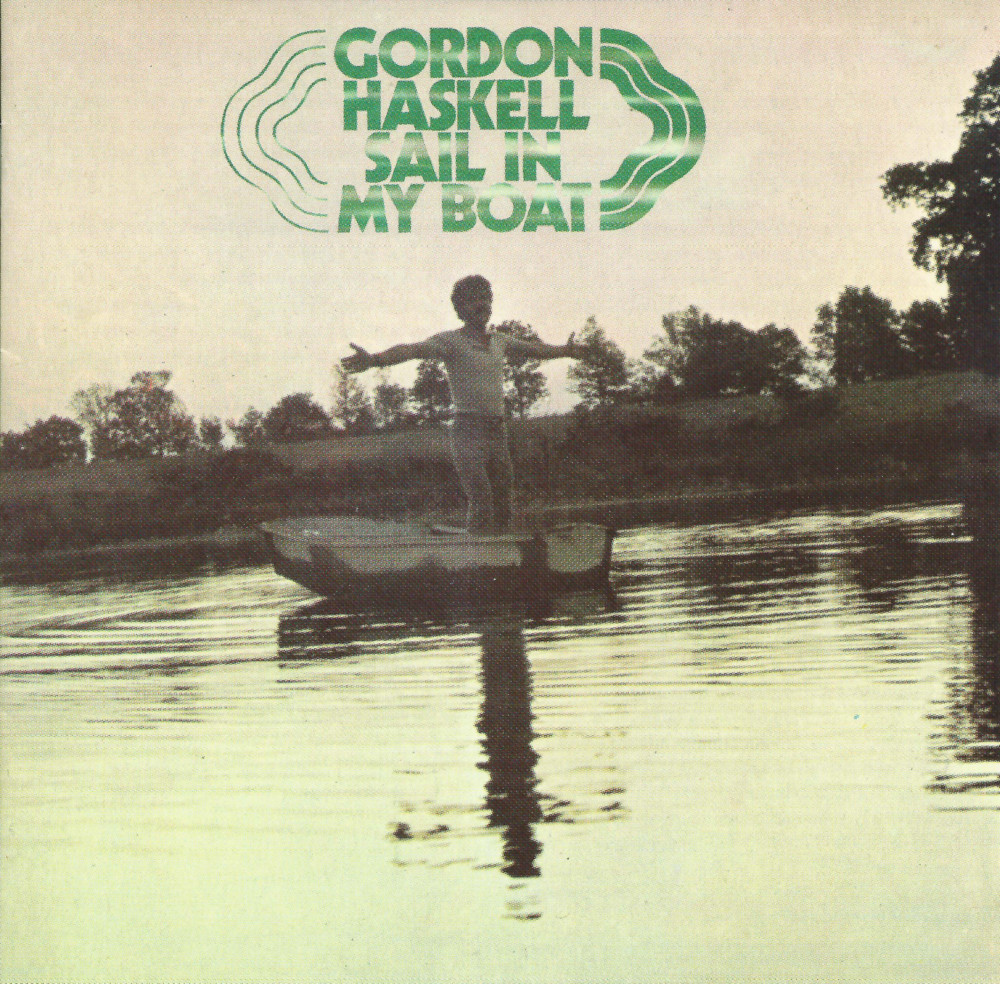
What would you say is the main difference in being a solo artist?
My best time for ‘loving the life’ was the time spent with Bryn and Keith in The Fleur de Lys. I didn’t choose to be a solo artist. My ego is not big enough to be an Elton John even if I can write some terrific material- and I consider myself to be a true artist. Being an artist is my only interest. I find the ‘star’ bit so boring and shallow and most of the time people are less fun than when one is part of a band-and very few people even know what an artist is-they just think in terms of Box Office, or Stardom… And most mainstream presenters and DJs at the top of their particular tree are only interested in their own egos OR if you don’t play their ‘star’ game, they get out of their depth and reveal themselves to be extremely dull and have ZERO interest in music. They are in the fame game, like the celebrity culture which stinks of shallowness and fakery. In a band one can hide. As a solo one has to spend time in company that is simply not exciting or of any musical interest whatsoever. You can lose your way easily. My stupid manager had me appearing in Cookery programs and shows like Never mind the Buzzcocks. It detracted from my status as an artist-and if one ever attempted to explain the difference between stars and artists one would run into problems.
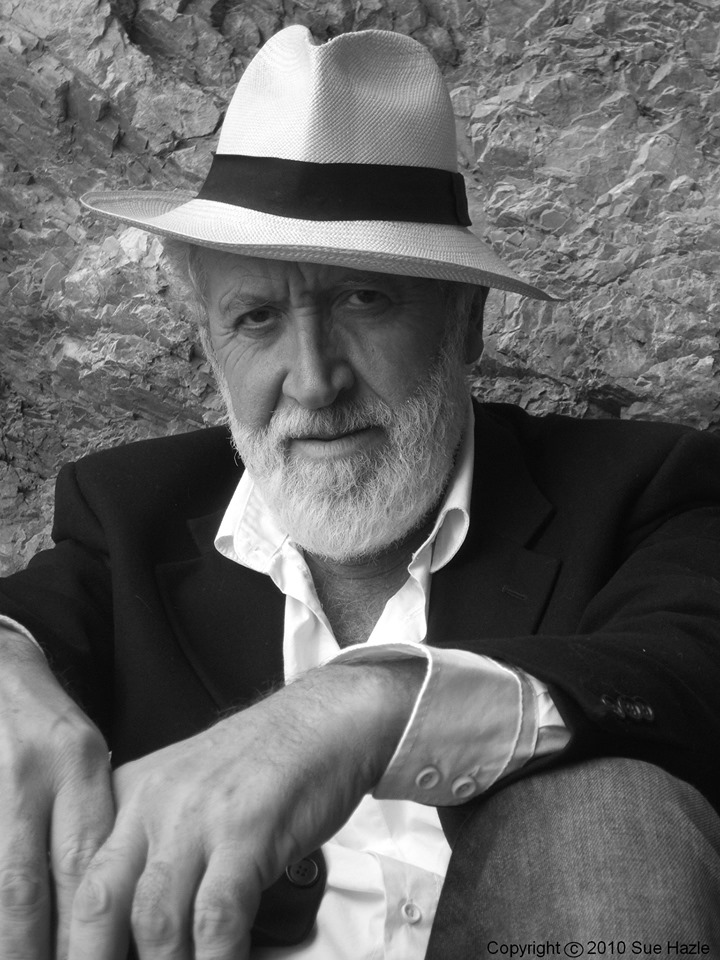
You were invited by King Crimson to be their bassist and vocalist. You appeared on the albums In the Wake of Poseidon and Lizard. What do you remember from recording material for King Crimson?
I remember a great ignorance on their part. I had had 4 years of first rate studio experience and they were beginners and in my view simply amateurs full of a false sense of great importance. It was 24 hours of listening to bullshit hailed as ”art”.
It was a con and people are so easily conned. The critics saw it as art for all the reasons I have hinted at when discussing the media. When the media recognize you are playing the same fame game as you are, they take you on board so in the end it becomes a bent version of the truth…reminiscent of governments who boast ”Tell the public a lie long enough and they will end up believing it to be the truth…”. See Building 7 on 9/11 as the perfect example of mind control and manipulation.
You decided to move on…
The easiest decision I ever made. I immediately got signed back to Atlantic by Ahmet Ertegun who had signed Ray Charles and knew the difference between real and fake.
Your following solo album It Is and It Isn’t was released by Atlantic Records. Please share your recollections of the sessions. What were the influences and inspirations for the songs recorded?
Arif Mardin produced it having just produced Aretha’s “I Say a Little Prayer” and Brook Benton’s “Rainy Night in Georgia”, as well as The Young Rascals. It was a joy to be back with the best professionals in the world and away from all the bullshit.
I was influenced lyrically by Green Issues that would not become fashionable until recently. I was still trying to be an artist and not quite cutting it. It would take me another 20 years to become a real artist as I had so many drawbacks and bad luck episodes.
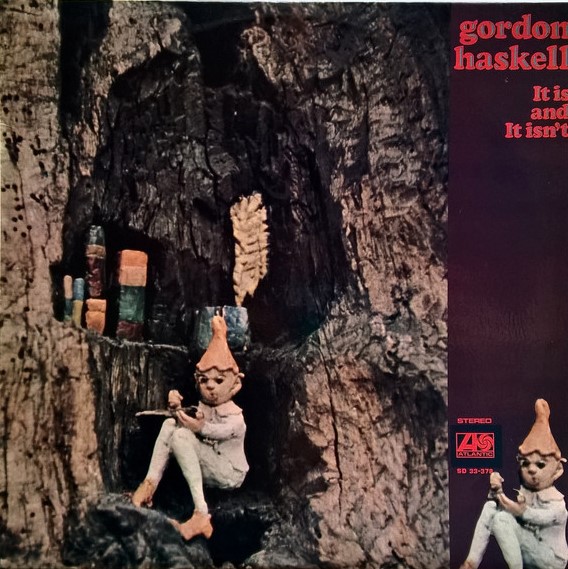
You also played with Cliff Richard and Tim Hardin.
I loved Tim Hardin. We were playing to less than 20 people at all the gigs but his material is unforgettable and the opposite of fake. His songs have lasted because they are real. The fake ‘stars’ fade away, even though they become rich and famous. I find that sad, after all this time. But so is 9/11. People can be very disappointing when one tries to reach them with valuable information or the real deal with music. But that’s the way it has always been and history will go on repeating its mistakes.
Cliff Richard, I enjoyed being part of it for a while, but it veers towards the fake a bit at times.
What about your collaboration with the group Stackridge?
Stackridge and I were mutual admirers so they cut my song “No One’s More Important Than The Earthworm”. I loved everything they did. They were original in every way and deserved greater success than they achieved. It’s the same old story. Lack of radio (due to the ignorance of presenters and producers in radio). Something Elton John never had to worry about. They played EVERYTHING Elton ever did. It’s easy being successful if you’re on the radio ALL THE TIME.
There was a transition period for you during the 80s until your wonderful release of Hambledon Hill in 1990?
This was when I began to become the artist I have talked about previously. I developed a guitar style and my singing improved rapidly due to doing 30 gigs a month, 4-5 hours per night.
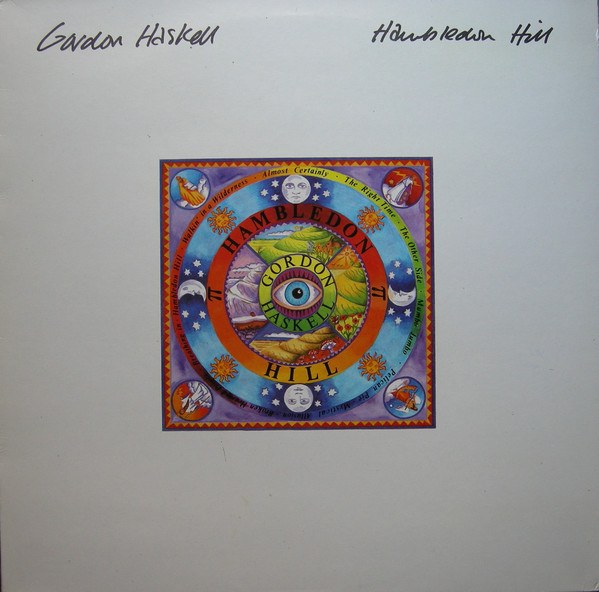
I didn’t realise what an effect it would have. I needed money quickly. By getting into deep water financially, I inadvertently became the artist I had dreamed of being. A happy accident of fate.
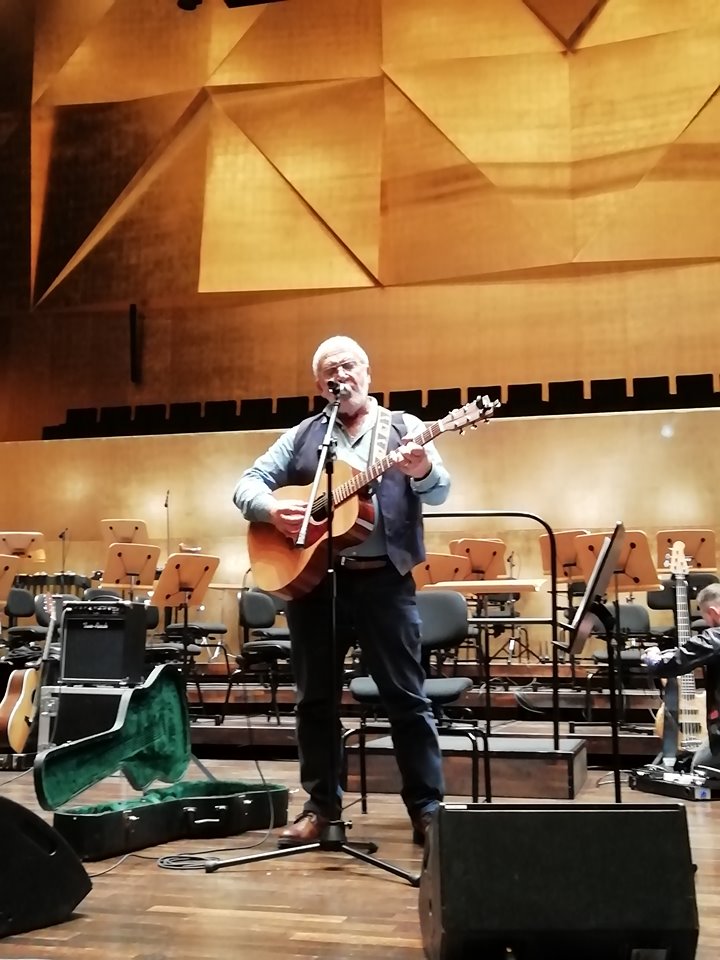
Then came the big success of “How Wonderful You Are”.
It was a real success driven entirely by the public being allowed to hear and buy something they loved as opposed to being dictated to by the radio industry.
It happened quickly but the industry did not welcome someone like me breaking the rules and getting success. THEY control the media. Not artists who manage by accident to get one DJ (Johnnie Walker) on side and get a hit without marketing managers and hype. In fact I felt a deep hatred wherever I went in the media. They clearly had an agenda and I had upset their agenda and I remember one media spokesman saying “DON’T WORRY. HE WON’T BE AROUND FOR LONG”. They began by pulling me off Top of The Pops and rigging the No. 1 in favour of Robbie Williams who The City of London were investing 42 million pounds. He HAD to be No. 1. So they rigged it. Just as the CIA’s main boast is ‘WE LIE, WE CHEAT, WE STEAL’ , so it is in the music business. Nobody speaks up as their precious careers will go down the toilet. At 74 years old, I can say it because I no longer give a shit. I am NOT BITTER. They have NOTHING THAT I WANT AND NOTHING THAT I NEED. I despise them all. They are responsible for this ugly and evil world and as long as artists remain quiet, nothing will ever change, simply, it is going to get worse until they have a totalitarian Technocrat bunch of psychopaths and outright cunts.
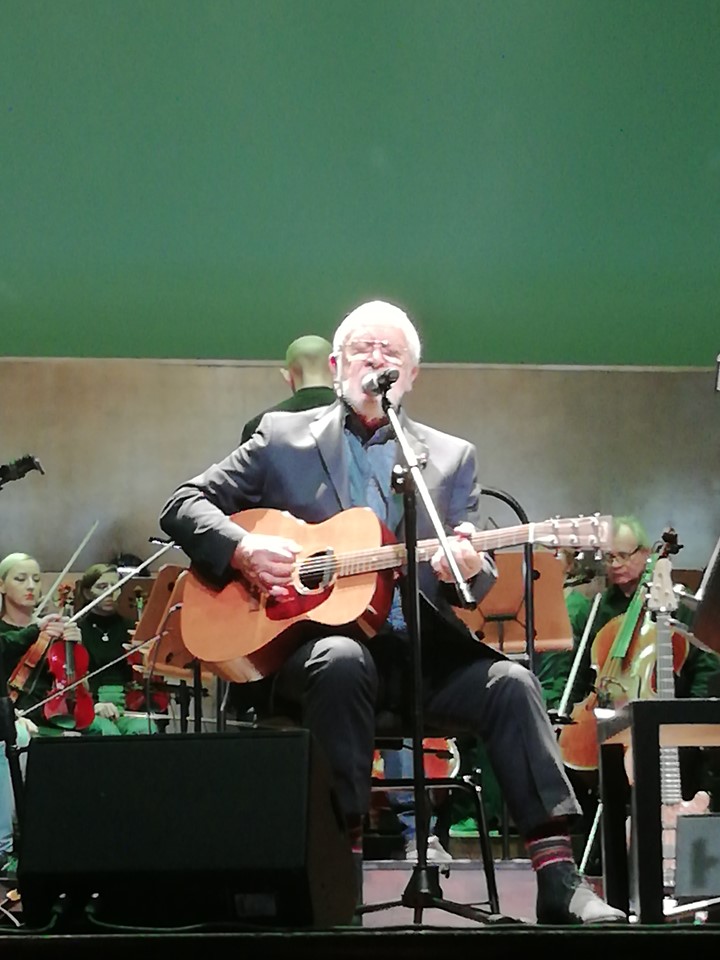
The Lady Wants To Know and One Day Soon followed.
The Lady Wants To Know was done as I felt grateful to Michael Franks for inspiring me to become an artist and for his beautiful material.
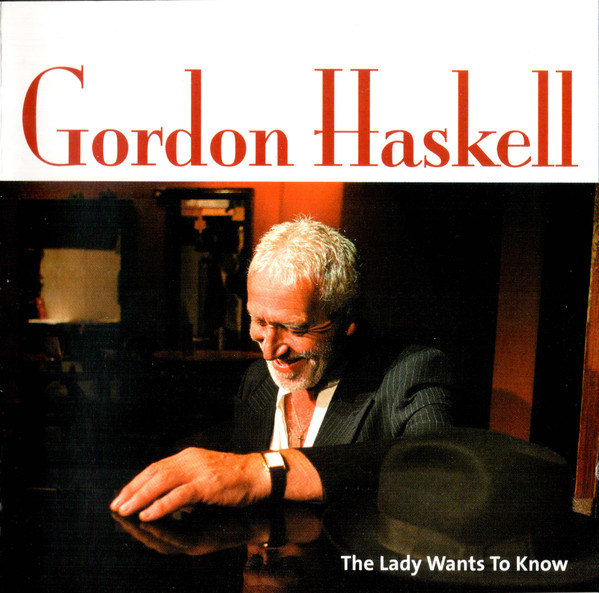
One Day Soon was after living in Greece for 3 years and seeing a nation destroyed by Bankers and evil people.
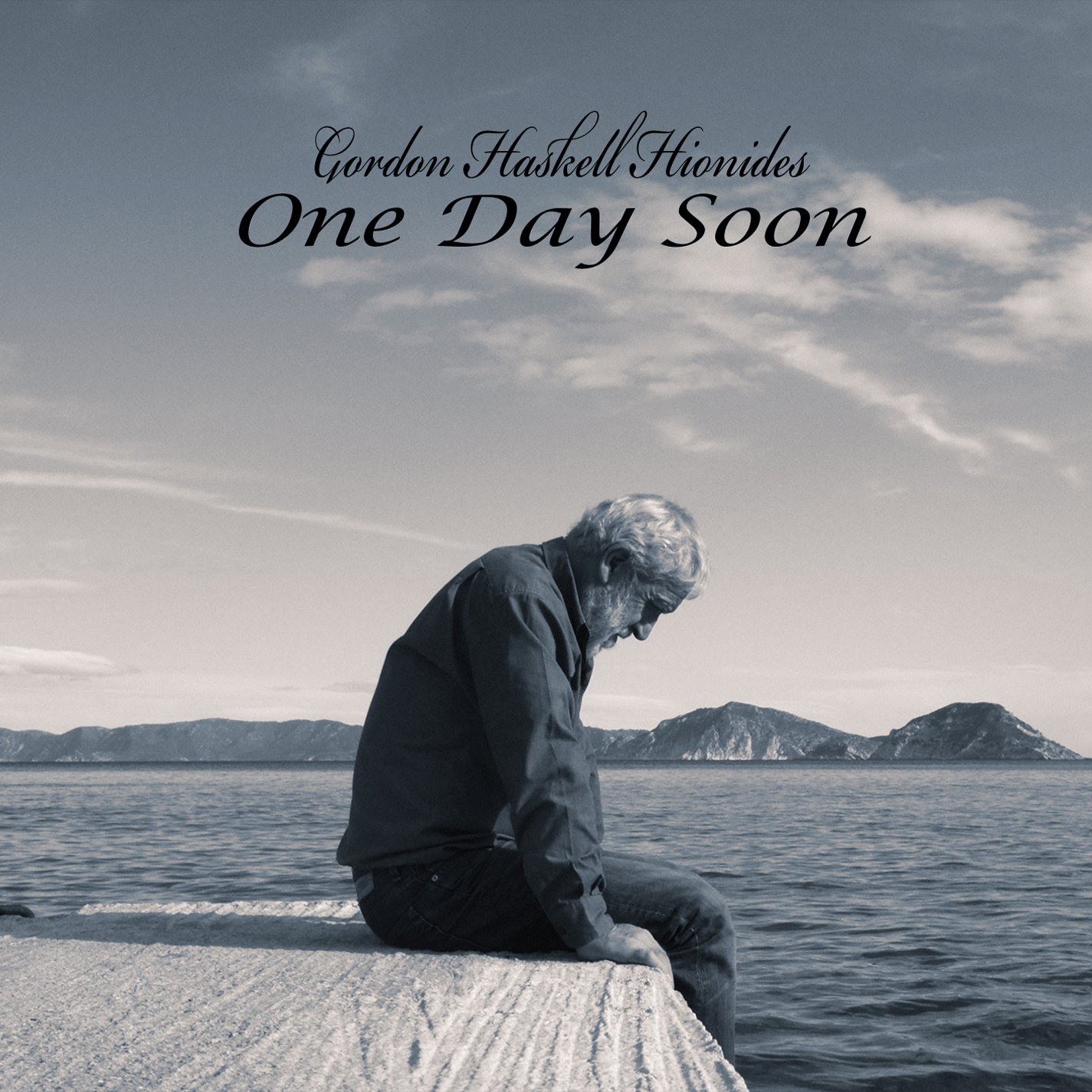
Who are some of your personal favorite bands that you’ve had a chance to play with over the past few years?
The best bands have been in Poland. The Polish Philharmonic Orchestra and I did a concert last November which was the highlight of my entire life in music. Prior to that, I used a Polish session band that you can hear on my DVD The Road to Harry’s Bar. They are sensational and up there with the best of LA or New Yorkers.
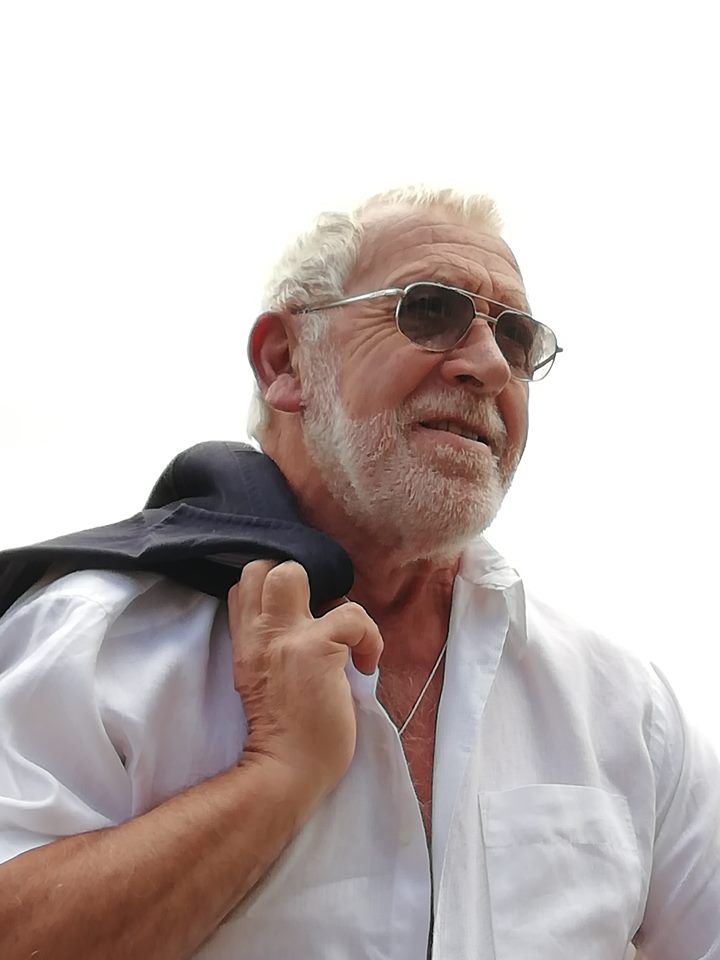
Is there any unreleased material you would like to see released?
No… My new album has cleared my desk .I have done all I want to do for the time being. I pray after the total collapse of the western financial Ponzi scheme, run and controlled by an organized criminal syndicate calling themselves ‘the elite’- that we might be able to rebuild the music industry based on the Atlantic Records ‘model’ with great music and genuine artists. Until that day, we are all fucked.
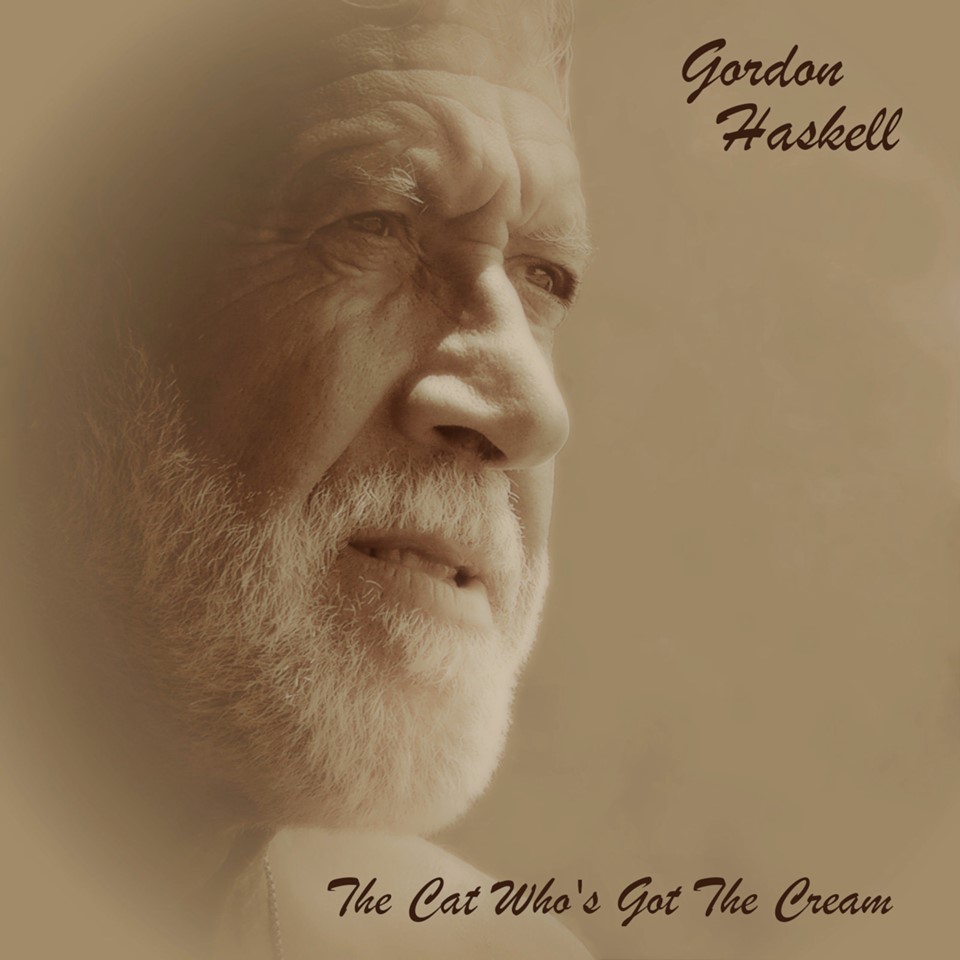
What currently occupies your life? Any future projects we should expect?
The virus has meant all my work cancelled for the foreseeable future. But it does coincide with a feeling that my new album The Cat Who’s Got The Cream is the best album of my life in every way, writing, arranging, singing, musicians and so I feel content at that. Gordon Haskell
– Klemen Breznikar
Gordon Haskell Official Website

